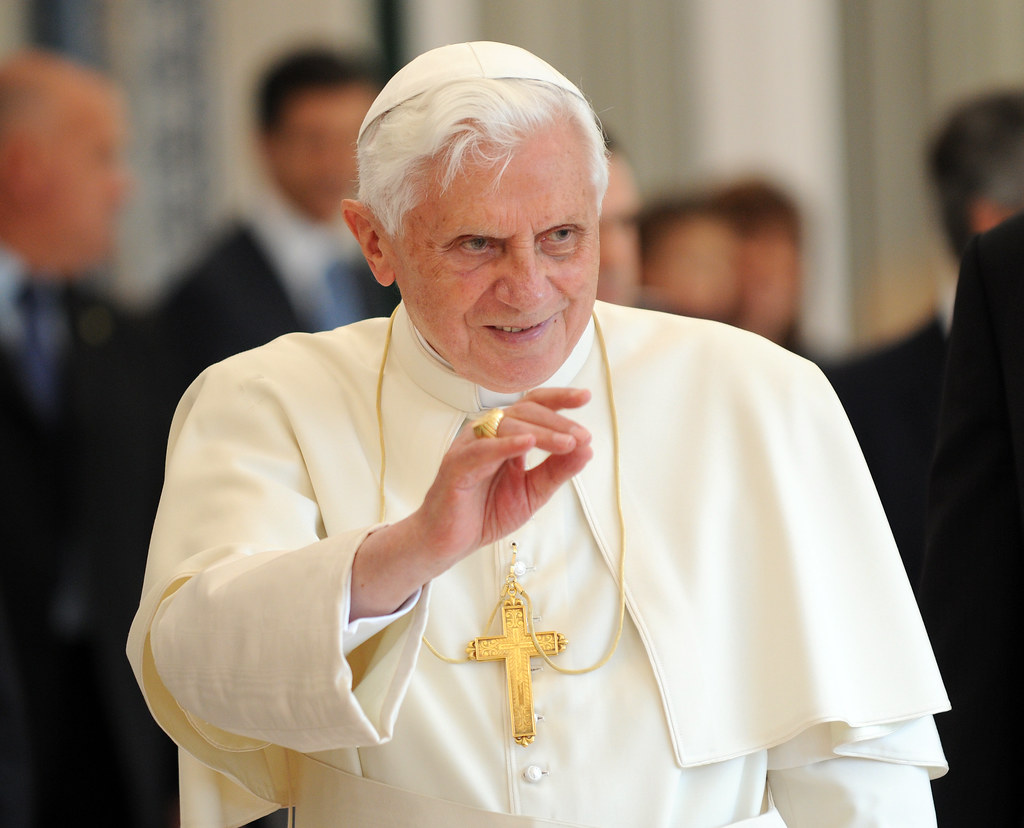On New Year’s Eve, the world lost one of the last surviving titans of the 20th century when Pope Benedict XVI passed away at the Mater Ecclesiae Monastery, Vatican City, at the age of 95.
Before ascending to the papacy the future Benedict, then Joseph Ratzinger, embarked on an academic career in which he established himself as a modern-day Doctor of the Church. After being created a cardinal by Pope Paul XI, Ratzinger acted as “God’s Rottweiler” by defending traditional Catholic teaching as Prefect of the Congregation for the Doctrine of the Faith. For a quarter of a century, he acted as one of Pope John Paul II’s closest advisers and played a key role in determining the direction of the Catholic Church.
As pope, Benedict continued to defend traditional Catholic doctrine, liturgy, and values against the growing Western embrace of moral relativism and secularism that he viewed as the defining issue of the twentieth century. A formidable intellectual and vigorous defender of the faith, Benedict inspired a generation of young Catholics, including myself, to consider their faith more seriously.
Benedict, born Joseph Ratzinger in the small Bavarian village of Marktl in 1927, took an unlikely route to the Chair of Saint Peter. Though Ratzinger’s German heritage would be uncharitably and unfairly held against him for the rest of his life, his family received demotions and harassment due to their strong opposition to Nazism. In 1941, according to German law, Ratzinger was forced to join the Hitler Youth following his fourteenth birthday. Ratzinger, according to his elder brother Georg, did what he could to defy the Nazis by refusing to attend Hitler Youth meetings. A cousin of Ratzinger’s, a fourteen-year-old boy with Down Syndrome, was murdered by the Nazis in 1941. In 1943 Ratzinger was conscripted into the Luftwaffe, but he deserted before the end of the war and was interned at a U.S. prisoner-of-war camp.
Ratzinger was ordained alongside his brother Georg in 1951 and qualified for a professorship with dissertations on Sts. Augustine and Bonaventure. As a professor at various German universities Ratzinger, who was initially regarded as a liberal theologian and had been considered a reformer when he participated in the Second Vatican Council (1962-1965), was disturbed by the Marxist leanings of radical student movements in the 1960s that culminated in the protests and riots of 1968.
After rising to Archbishop of Munich and Freising and becoming cardinal in 1977, Ratzinger began his career at the Vatican, where he resolutely defended Catholic doctrine and social teaching, no matter how unpopular. After John Paul II’s death in 2005, a papal conclave was convened. Ratzinger did not seek power, as has often been suggested by critics. Instead, he had long hoped to either work as an archivist in the Vatican Apostolic Archives or to retire to Bavaria. Ratzinger was elected after four ballots and, despite praying to be spared the burden of the papacy, the new Pope Benedict XVI answered God’s call.
Benedict chose his papal name in remembrance of Benedict XV, whose pontificate coincided with World War I, but also in honor of Saint Benedict of Nursia in order to serve as a reminder of Europe’s Christian roots. In his first public address as pope, he emphasized that he was but a “simple, humble laborer in the vineyard of the Lord” who, despite being an “insufficient instrument” had been chosen to succeed his charismatic and energetic predecessor.
As pope, Benedict did not shy away from the traditional teachings that he had embraced as Prefect of the Congregation for the Doctrine of the Faith. On multiple occasions, God’s Rottweiler bared his teeth. He harshly criticized the insidious modern “dictatorship of relativism” that he believed “leaves as the ultimate criterion only the self with its desires.” Masquerading as freedom, Benedict argued, such radical relativistic individualism “becomes a prison for each one, for it separates people from one another, locking each person into his or her own ego.” The sixth German pope also defended Catholic doctrine on family, marriage, sexuality, and other areas.
Benedict came to be known as the “pope of aesthetics” because of his emphasis on the importance of Catholic art and architecture as meaningful expressions of the relationship between God and man. He also revived the traditional Tridentine Mass. Benedict was a formidable intellectual who wrote numerous influential books and encyclicals throughout his prolific career. Among other hobbies, Benedict was an accomplished pianist (he favored Mozart and Bach) and spoke Latin, German, English, French, Italian, Spanish, Portuguese, Classical Hebrew, and Biblical Greek with varying degrees of proficiency.
In 2013, citing a “lack of strength of mind and body,” Benedict again exemplified humility by becoming the first pope to resign since Gregory XII in 1415, and the first to voluntarily do so since Celestine V in 1294. In his decade as Pope Emeritus, he remained the lucid likeness of deep faith that he had always been. Benedict XVI was the first to admit that was imperfect and fallen like the rest of us, but he will be remembered as a giant among men who inspired millions to aspire to something even greater.
